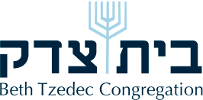This week’s Torah reading, Ki Teitzei, contains the most Mitzvot (Commandments) of any weekly Torah reading. According to the traditional count of there being 613 Mitzvot in the Torah, 74 of them (12%) appear in this week’s reading.
The subjects of these Mitzvot are all over the place, ranging from how to treat captives in war to rules about forbidden mixtures, from property law to dealing with a rebellious child, from shooing away a mother bird before taking her eggs to the eternal command to wipe out Amalek’s name from under heaven.
It’s ironic that the Torah reading with the most Mitzvot, the rules that order our society and the way we live, is filled with a seemingly disordered and unruly patchwork list of commandments. From one perspective, it seems that the Torah wants to make sure all the Mitzvot we need to know are included before the Torah concludes – which we will read in only a few short weeks.
Another lesson, though, of the way in which these Mitzvot are presented might be that while God gives us the parameters of how to live our lives, it is up to us to figure out how to put it together into a coherent flow and a functioning society. If God provided both the commandments and the complete user manual to living, we humans would have little creativity to sway from God’s clearly delineated path. What makes us human, sometimes manifested in incredible acts of kindness, generosity and bravery, or through terrible acts of violence, harm and discord, is that we hold our destiny in our own hands. God has given us the playbook, but it is up to us, the players on the field, to turn those sketches into reality.





